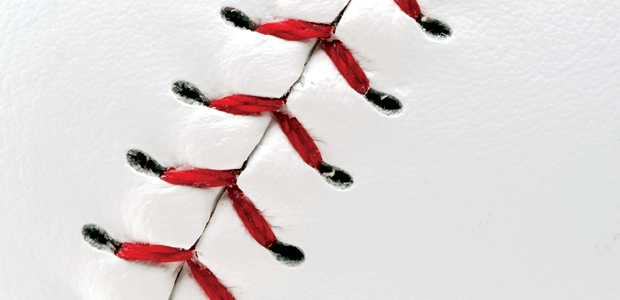Advertisement
On the Mend
Natural support for wound healing

Our bodies are constantly rebuilding and repairing themselves. But sometimes repair to skin and soft tissue following surgery or trauma demands more of the body’s repair system, which must act quickly to mend damaged tissue and prevent infection.
A well-balanced diet with increased protein intake and an effective combination of nutritional supplements can help to speed the healing process. During wound care, keep these tips in mind.
Basic good nutrition
The body must be fed properly in order to heal properly. Choose a wholesome diet with a good variety of fresh fruit and brightly coloured vegetables, lean proteins, and whole grains to ensure that the body has the resources that it needs. Avoid excess sugar, alcohol, and white flour products, which offer little in the way of nutritional value and can interfere with the immune system’s ability to fight off infection.
Natural boosts
With a well-balanced diet as your base, a combination of nutritional supplements can provide extra support during wound healing.
Protein: The very building block of tissues, protein provides amino acids—in particular, the amino acid arginine—needed to create tissue-building collagen. Arginine has been shown to help improve collagen deposition in wounds and therefore improve wound healing. Protein is also required for the proper maintenance of immune cells to reduce risk of infection.
Protein requirements will vary by patient according to extent of injury and nutritional status, but recommendations range from 1.2 to 2 g per kg of body weight per day. A protein supplement such as whey protein, added to foods or beverages, can be an easy way to up protein intake.
Vitamin C: Also crucial to collagen formation, vitamin C is a mainstay of many naturopathic wound healing protocols. Without adequate vitamin C, wounds heal slowly and the risk of infection can increase. In conditions such as diabetes, poorly healing wounds and frequent infections can be an ongoing problem, making supplementation with at least 500 mg of vitamin C a day worth considering.
Zinc: Oral zinc may also be helpful, supporting the immune system and helping to heal wounds from the inside out. Inadequate zinc intake can be a concern in vegetarians, the elderly, and those who eat a diet high in processed foods. These groups in particular should be sure to get the recommended dietary intake of zinc (9 mg daily for adult males and 8 mg daily for adult females) during wound healing.
At least one trial has shown that increased protein intake and supplementation with the nutrients arginine, zinc, and vitamin C in combination over a period of three weeks improved healing of pressure ulcers, one example of chronic and difficult-to- heal wounds.
Healing wounds takes time, but it also takes the right raw materials and a healthy immune system. A nutritious, well-balanced diet, along with extra wound-healing nutrients such as vitamin C, zinc, and extra protein, can help your body to mend itself properly and avoid infections.
Signs a wound is healing poorly
- Increased pain, swelling, redness, warmth, or tenderness
- Red streaks extending from the affected area
- Discharge of pus
- Swollen lymph nodes
- Fever of 38 C (100 F) or higher
Source: BC Health Guide, 2005
A sweet addition to your first aid kit
Honey has been used as a topical treatment for wound healing since ancient times. Now modern research supports the benefits of honey in wound care. Studies have shown that honey can improve healing of pressure ulcers, diabetic foot ulcers, radiation- and chemotherapy-induced skin reactions, minor burns, and postoperative wounds from Caesarean section and hysterectomy. Honey may also help to reduce scar formation and prevent infection.
Medical grade honey that has been sterilized by gamma irradiation has been shown to inhibit the growth of the bacterium MRSA, a strain of Staphylococcus aureus bacteria that is resistant to several antibiotics.




